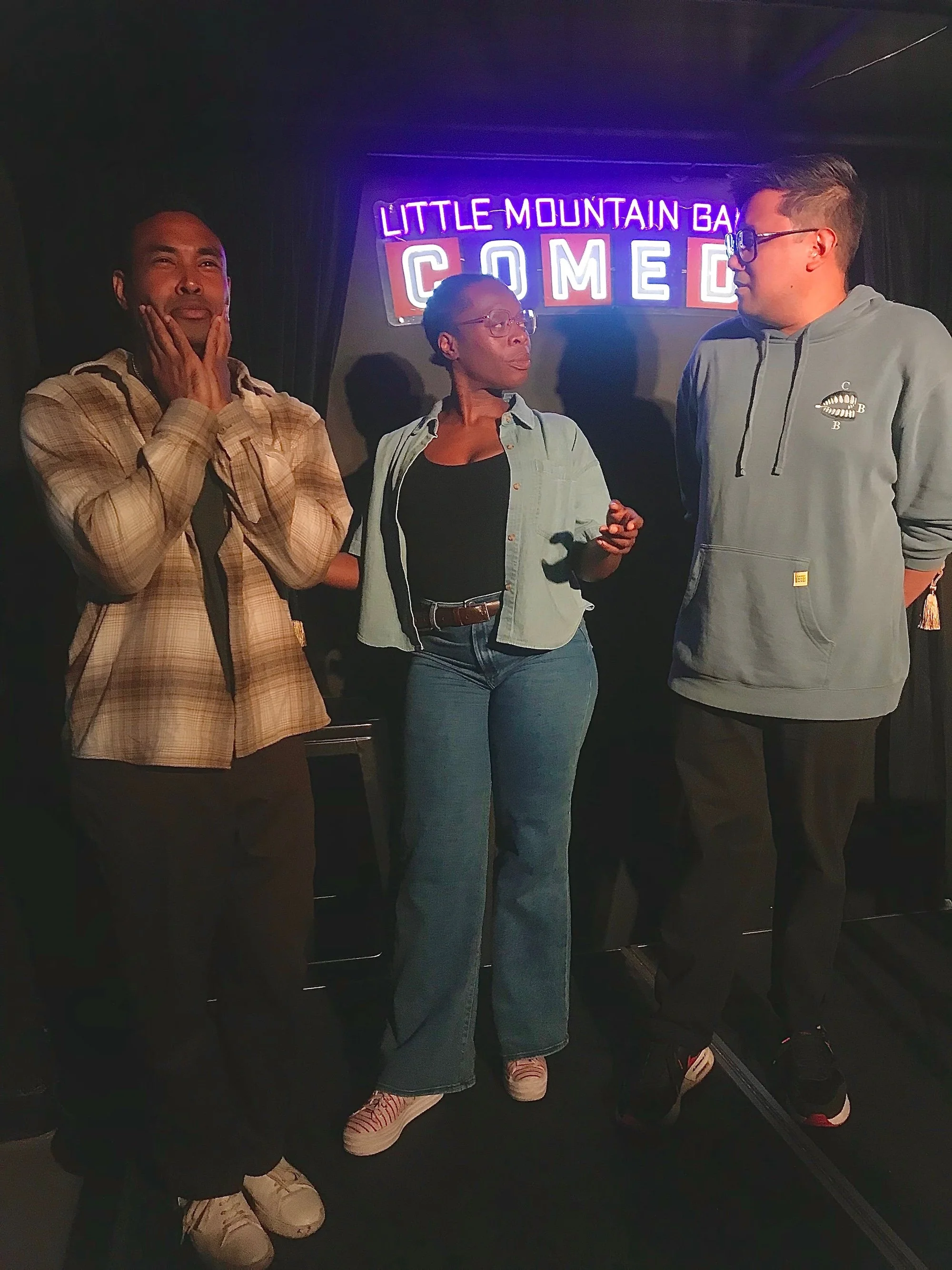Preview: Virtually Absurd and Those Who Come, Will Hear at DOXA
/The DOXA Documentary Film Festival is upon us! Running from May 3 until May 13, the fest is packed with skillful filmmaking and poignant/exciting/funny/eccentric material galore. Our film reviewers have kindly put together a few selections ahead of time, so that you, dear SAD reader, can enter festival season with some choice titles in mind.
Film still from Tabita Rezaire's Deep Down Tidal (2017)
I like short film programs. In fact, I have a penchant for them. When I buy a ticket to a collection of festival shorts, it’s like I’ve acquired the ultimate cinema wild card; who knows what wonders await me? I gravitate towards short film programs because they challenge me to engage with vastly different creative visions and narratives, side-by-side. They flex my film-viewing muscles, and I appreciate them for it.
So, when tasked with writing about the 2018 DOXA Documentary Film Festival line-up, I knew I had to include a shorts program in the mix. Virtually Absurd was the series I landed on, mostly due to its intriguing title. Themes of internet existentialism, idiosyncratic messages, and post-modern communication methods pulled me right in. The program includes four short flicks: Baby iPad, a micro-short clocking in at a mere two minutes and directed by Tom Whalen, who harkens back to those infamous E-Trade commercials (you know, the ones with the talking, investment-making babies? Maybe I’m the only one who remembers), positing infants as capitalist consumers to clever effect: Tabita Rezaire’s Deep Down Tidal, a politically-conscious short doc which closely examines the geographical connections between submarine internet cable routes and those of genocidal colonialism (spoiler: they’re strikingly similar): G. Anthony Svatek’s .TV, which simultaneously looks at the business of internet domain ownership, environmental decline, and post-humanism: and Byron Peters’ Pure Difference, a lofty take on the significance of numbers and the distance between them, with special focus on how these distances manifest in the social, political, and environmental realms. Lots to take in, no?
What struck me the most while watching this collection of short documentaries was how interconnected their themes of existentialism were. I felt, especially as the program progressed, a very strong connection to the non-physical—the virtual, if you will. These films were clearly grappling with a future laden with environmental destruction and broken freedom; where will we go and how will we communicate, if we cannot sustain our connection to the earth? Perhaps the internet is not as friendly an alternative as we might assume. Deep Down Tidal is the loudest in its declaration of this claim, stating (with a heavy hand, no doubt) that “our communication system is layered into a geopolitical matrix of pre-existing colonial routes.” In other words, our virtual societies mirror those of the “real world” and cannot be free of exploitation, oppression, exclusion, and coercion until the same hierarchical structures are dismantled entirely. It is not enough to simply escape into the virtual void.
My advice to you is: See Virtually Absurd if you are interested in patterns of human connection, globalism, pressing social commentary, and intertextuality. Your brain will thank you for it. Or, at the very least, see Virtually Absurd because as a shorts program, it deserves some love.
Film still from Simon Plouffe's Those Who Come, Will Hear (2017)
In keeping with the theme of human connection and exchange, Simon Plouffe’s Those Who Come, Will Hear examines the genealogy and present-day life of several First Nations languages, with origins in and around Northern Quebec. Those languages include: Abenaki, Atikamekw, Innu, Inuttitut, Kanienkehaka (Mohawk), and Naskapi. Many of the speakers from whom we hear are elders in their community, and all are focused on the continuance of culture between generations. This subject is common amongst First Nations cinema because it is still at the forefront of First Nations survival; Those Who Come, Will Hear adds further weight and intensity to the issue.
In short, the film is beautiful to watch. Its pace is steady and deliberate, its message clear (even as people onscreen fumble through dialects and speak in hybrid sentences, mixing together French, English, and the language of their First Nations community). The surface of Those Who Come, Will Hear serves as an interface between landscape and language; much of the film is spent observing the land and listening to voices speak Indigenous words, which marries the two in a powerful way. Grassy plains, snowy fields, wide valleys and calm beaches—they all speak their own language, too. Plouffe’s film supposes that all is in connection with each other through continual dialogue, and that this exchange must be maintained.
The importance of cultural bond via language saturates the entirety of the film, even in its more subtle moments. A few of these which stood out to me include: An elder’s explanation of his past hunting routes, which took him across rivers and expanses almost too vast to believe, all documented on a fold-out map pinned to the wall. At one point, when speaking of the many different people he met along the way, he says “we all spoke differently… we understood each other.”: A woman calling out bingo numbers over the radio, each in three different languages: An Inuit man beating a teueikan (drum) and singing, while his wife sits, hands carefully folded, on the couch next to his armchair, photographs of their long life together hanging on the wall above. Moments flow from one to the next, and although dialects change constantly, the film never loses its united aim—to document the active preservation and endless value of each tongue.
Virtually Absurd: Shorts Program will be screening on Wednesday, May 9 at 8:30pm. Tickets can be found here. Those Who Come, Will Hear will be screening on Saturday, May 12 at 4:30pm. Tickets can be found here.







